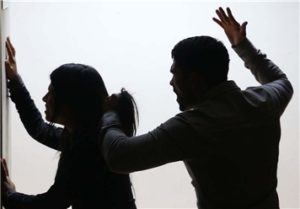Deciding Without Help
 A long quotation on the role of violence, — some difficult issues consequent to deciding upon a violent act, necessary for survival.
A long quotation on the role of violence, — some difficult issues consequent to deciding upon a violent act, necessary for survival.
This world is a violent place. Homo Sapiens often have recourse to violence. Ask any who live in Ukraine, or who lived in Afghanistan, or Iraq, or Syria… Places wet with blood, marked with the grief of survivors who remain.
Consider Ukraine, surrounded on three sides by the Russian army. Ukraine promises to be a land under the scythe of warfare, a charnel house of armored assault and resistance…
There is a point, where non-violence just makes no sense.
We challenge
every condemnation as well as
every a priori justification of violence
practiced with a view to a valid end.
They must be legitimized concretely.
A calm, mathematical calculation is here impossible.
One must attempt to judge the chances of success
that are involved in a certain sacrifice;
But at the beginning this judgment will always be doubtful;
besides in the face of immediate reality of the sacrifice,
the notion of chance is difficult to think about.
On the one hand, one can multiply a probability infinitely
without reaching certainty;
but, yet practically, it ends by merging with this asymptote:
in our private life as in our collective life that is no truth
other than a statistical one.
On the other hand, the interests at stake
do not allow themselves to be put into an equation;
the suffering of one man,
that of a million men,
are incommensurable with the conquests
realized by millions of others,
present death is incommensurable with the life to come.
…one finds him/herself back at the anguish of free decision.
And that is why political choice is an ethical choice;
it is a wager as well as a decision;
one bets on the chances and risks
of the measure under consideration;
but whether the chances and risks must be assumed
or not in the given circumstances
must be decided without help,
and in doing so one sets up values.
-excerpt, The Ethics of Ambiguity
By Simone de Beauvoir p. 160